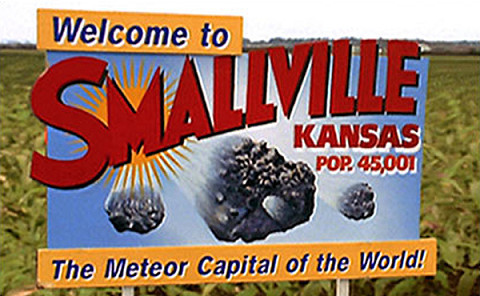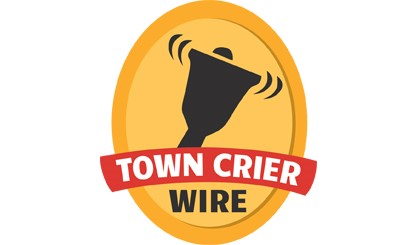
At the end of October, I’ll be spending a day mentoring a fledgling radio wannabe. His name is Nick Tehrani, and he and I have been connected through Dan Vallie’s National Radio Talent Systems and the Benztown’s Mentorship program.

Nick will be joining me in Detroit, and then spend a day with Bob Lawrence, Saga’s head of programming who’s also located in the Detroit Metro area. This should be a great experience for Nick, and frankly, I’m hoping to pick up some tips and insights from him. These past few years when addressing students about the radio industry and careers, I’ve found it very helpful to ask them what’s going on with media, music, and entertainment.
And that’s why I’m approaching my day with Nick with some degree of trepidation. That’s because the only thing worse than no mentoring is bad mentoring. I was fortunate throughout my career to – by and large – receive pretty sound career advice from lots of people, especially in the early years. Sometimes, you learn by just observing. I picked up many career tips – what to do (and sometime what not to do) – from luminaries like Frank Magid, Rick Sklar, Marty Greenberg, John Gehron, and Tom Bender.
And that led me to think about radio generation’s gap today – the gulf between us crusty old radio veterans and those remarkable teens and twentysomethings pursuing a career in broadcast radio. When I jumped into the fray, it was the 1970s, and radio provided an upwardly mobile career path. You could make a lot of money in radio as a salesperson at a very young age. Many of the industry’s biggest and best stations were being programmed by people under the age of 30. Consolidation didn’t exist, so there were exponentially more companies, and as a result, more opportunities in markets of all sizes.
It’s a different world in radio today. While most of the advice and guidance I received by the aforementioned group of mostly ABC Radio pros was spot on, I’m not sure that’s the case today when a young radio wannabe sits down with a radio Boomer like me.
Back then, I (mostly) trusted their judgment and advice. They had experience and had paid their dues. I was still trying to find my way. So, I listened and I took notes.
Contrast that with today’s environment, where long-time broadcasters  may not be as in touch as they think with teens. I thought of that when I read Chuck Taylor’s story in Inside Radio, “Gen Z Offers Radio Some Sound Advice.”
may not be as in touch as they think with teens. I thought of that when I read Chuck Taylor’s story in Inside Radio, “Gen Z Offers Radio Some Sound Advice.”
That’s sometimes called “reverse mentoring” – where young people try to teach grizzled veterans the ropes. Jose Villa, now Chief Strategy Officer at Sensis, took the stage with a group of Gen Z’s.
Here are some of the money quotes that jumped out at me:
- A 40-year-old man cannot relate to a college student. It’s impossible. There’s a big disconnect. Radio shows need to have Gen Z interns on the air.
- I don’t tend to like radio because of the commercials. The only way to bring people my age to radio is to get rid of stop sets for 12 minutes per hour. Bring brands into the programming instead of commercials.
- There are very few voices speaking to Gen Z on radio. It’s a lot of middle-aged men slinging one-liners. Gen Z is aware that radio exists, but that connection doesn’t deepen, because we’re not being spoken to…
- If you don’t have young people on your staff, you are doing it wrong. I’ve got to have people to connect with my life to relate to radio.
Powerful stuff. So, I started compiling a list of bad career advice I’ve heard industry veterans give young, aspiring radio stars. In fact, I had no trouble coming up with eight of them:
1. You don’t need a degree to be successful in radio – That was true back in the day. Many of radio’s most successful broadcasters skipped or cut short their college years to get an early jump in the business. Today, things have changed. While not true across the board, great content, smart marketing, and data deployment usually require education. Presentation and writing skills are essential, in addition to being well-read. College also inspires curiosity – a quality that is essential for success in this business (and most others)
2. Start out in a small market and work your way up – Yes, that was the old school upwardly mobile way to go – Muskegon to Flint to  Grand Rapids to Detroit to New York. Of course, that’s still a workable trajectory, but in the biggest markets, there is need for young expertise – NOW – especially in sales and in digital departments. A young person with strong skills and plenty of motivation can get started in Chicago or L.A. just as easily as Chattanooga or Lima. And they can be impactful.
Grand Rapids to Detroit to New York. Of course, that’s still a workable trajectory, but in the biggest markets, there is need for young expertise – NOW – especially in sales and in digital departments. A young person with strong skills and plenty of motivation can get started in Chicago or L.A. just as easily as Chattanooga or Lima. And they can be impactful.
3. If you can entertain, you’ll have a job forever – Tell that to Jay Leno who – for all intents and purposes – lost his gig when it became obvious he wasn’t buying into social media and the new digital ecosystem. A look at late night hosts in 2019 shows a group that’s especially savvy with their online communities, using the entire tool kit to push out content, and expand their base. Yes, Jimmy Kimmel, Stephen Colbert, Seth Meyers, and James Corden are entertaining guys. They also are immersed in technology and growing and engaging their fan bases via digital pathways.
4. Stay in your lane – OK, this is a tricky one. Smart, thoughtful radio employees learn how to pick and choose their spots. These days, simply doing your job is often not enough to sustain your career. The more different skills you acquire – especially the rare ones that no one else can do – the more secure you are and the more valuable you’ll be to the company. Start a podcast, try out new social media platforms, go to a tech convention – in short, grow your skills because training is harder and harder to come by. If you can edit video, know your way around Photoshop, or are a video games pro, let your bosses know. They might just put you to work in a more interesting department or job.
5. Stay put – don’t market hop – This has become bad advice whether you’re in radio, logistics, or computers. Millennials have the reputation for up and leaving jobs, working for several different companies over a short time span, showing no sense of loyalty. While radio companies and their executives get frustrated when smart young people move onto to allegedly greener pastures, that’s the way of this world. Radio broadcasting is no different. For young people excited about radio, there’s no reason to work for a lame company or bad people. Life is short. Find a radio company and a community that suits your style, your goals, and your personality. They’re out there, but chances are, you won’t find it in your first (or your second job).
up and leaving jobs, working for several different companies over a short time span, showing no sense of loyalty. While radio companies and their executives get frustrated when smart young people move onto to allegedly greener pastures, that’s the way of this world. Radio broadcasting is no different. For young people excited about radio, there’s no reason to work for a lame company or bad people. Life is short. Find a radio company and a community that suits your style, your goals, and your personality. They’re out there, but chances are, you won’t find it in your first (or your second job).
6. Respect your elders – OK, this is a bit awkward, because I’m an elder. But after attending that Detroit radio reunion a few weekends back, I on the one hand marvel at these aging radio pioneers. But on the other hand, the business has so completely changed that it often doesn’t resemble its roots – especially for on-air personalities. For young people in the business, an understanding of the medium’s history may be helpful, but it has little to do with what success looks like in 2020. The older folks at the station have experience on their side – but you have knowledge and skills about changing audiences sensibilities and engagement. You both have a lot to offer.
7. It’s all about the ratings – On the one hand, it still is. But on the other, digital revenue has been growing while spot sales (transactionally based on ratings) have been flattish to  down. Better advice to fledgling radio stars is to figure out a way to expand your online audience, and make it work for advertisers and marketers. Do that, and you’re well on the way toward becoming the MVP for your cluster – or your company. Yes, your 25-54 rank, your cume, and your average rating is important to the traditional way radio is bought and sold, but help solve monetizing your station’s digital domain, and you’re off to the races.
down. Better advice to fledgling radio stars is to figure out a way to expand your online audience, and make it work for advertisers and marketers. Do that, and you’re well on the way toward becoming the MVP for your cluster – or your company. Yes, your 25-54 rank, your cume, and your average rating is important to the traditional way radio is bought and sold, but help solve monetizing your station’s digital domain, and you’re off to the races.
8. And whatever you do, don’t go into radio – Maybe the worst advice of all. There’s no shortage of jaded, angry, disillusioned former radio people who feel they’ve been burned by heinous corporations and evil people in suits. In reality, a lot of good people were treated poorly, and the industry lost many good people as a result of budget cuts. But somehow, many industrious broadcasters have found a way to survive – and thrive – even in this whipsaw environment. And as we know, every industry is being disrupted by technology and the changes it wreaks. It takes different skill sets and a resilient mindset to make your mark in radio, but it still can be done.
So, that’s my list of bad Boomer advice for fledgling young radio stars. But I want to leave you radio veterans with a sense of paying it forward in the form of mentoring. Whether it’s speaking to high school or college students and classes, I invite you to connect with organizations like Conclave, Dan Vallie’s program, Joel Denver’s “Ria’s Rising Stars,” and take advantage of opportunities to welcome Millennials or Gen Zs to the industry.
Broadcast radio will get better when it expands its tent, actively welcoming young people to this industry. The great news is that many still want to work in radio.
It’s on us to encourage and help them find their way.
- What To Do If Your Radio Station Goes Through A Midlife Crisis - April 25, 2025
- A 2020 Lesson?It Could All Be Gone In A Flash - April 24, 2025
- How AI Can Give Radio Personalities More…PERSONALITY - April 23, 2025




Fred, You missed one great piece of advice.
“Don’t expect instant financial gain and develop a great work ethic”.
To often today the expectations of the “Z” people is huge salaries and a take it or leave it work ethic. There is still a need to get to work on time, and actually work while there, not play on your Iphone. Salaries are modest to start and huge commissions don’t come instantly.
Just a thought from someone who has hired and managed many talented and dedicated people over a more than 35+ year career both as a PD and as a Market Manager.
Terry, you are correct. That IS a good piece of advice, no matter the generation or the situation. Thanks for commenting.
Terry, I’m also a grizzled vet, stomping my way through Washington DC.
The expectation of immediate rewards is not new — the Preppie/Yuppie phase of the early-mid 1980s brought forth a wave of folks demanding the same thing: “Hey, I got my degree and showed up for work … where’s the big pile of money I’m owed?” As a young Boomer on my second PD job back in the day, that’s all that walked through the door. They’re still coming.
Fred’s advice is valid, as is yours. The standout bit of advice – Tip #4 – was told to me many years ago under this translation: “Never Be Satisfied With Your Show”.
I am blessed to work every day with a number of talented young colleagues. Most likely some day I will be working for them.
We have a great mix of people of various ages working together. The key is respect, and to learn from each other.
I didn’t have that when I got into radio in 1974. Old meant 30.
Veterans—usually at heritage stations—were in their 40’s. Old timers were in their 50’s. I don’t think I knew of anybody who’s the age I am today, 64.
My rules: Create change, don’t follow change; Money follows success; Learn from observing; Don’t expect to be taught—learn. Treat everybody with respect and kindness.
People tried to scare me away from this business in the 70’s. Just like then, you can make this a great career with talent, hard work and a little bit of luck.
Great observations, Jeff. Thanks for offering it up. And yes, this is still a great career.
I’m 75 Jeff. uniteddj.com launched in April 2018 with 32 DJs each with amazing careers in radio, Max McGill broadcasts from Ohio, Freddie Cannon from Nashville, Emperor Rosko from LA. We have experienced broadcasters in Holland, Denmark, Malta, South Africa, Ghana, Northern Ireland three in Canada and many in the UK. What makes the station (channel) different is every member of the team selects their own music from seven decades including hot new tracks from today. Everyone speaks in English. Everyone talks to our global audience many conducting Facebook conversations live with our listeners. Yes, I appreciate that every radio station can now be heard globally but we’re actually working to a global audience. No news, no PD, no playlist, no news, just freedom. Our time checks are often given in UK time with the odd global time check. The only weather reports we feature are from our listeners around the world. There are few rules for the team because they know their job. I myself come from the pirate ships of the 60’s (seen in the movie Pirate Radio/The Boat that Rocked or my own 16 episode film documentary The History of DJ). After the pirates were made illegal in 1967, I joined RTL (Radio Luxembourg) where I spent 17 years, 7 as PD. Mike Read held down BBC Radio 1’s Breakfast show for many years and is now sounding better than ever on UDJ. Reason? He’s free to create a radio show which he conceives without the studio door bursting open and an irate PD frothing at the mouth. The fact is everyone on this radio station(channel) would be quite capable of being a PD, some of them once were. I hope we succeed without FM as my own inspiration for starting United DJ Radio, (taking a leaf out of Chaplin/Fairbanks/Pickford’s United Artists) came when I realised streaming was the future for radio. The moment I knew that two major American car manufacturers had introduced steaming into their new vehicles, our adventure began. It’s obviously a radio experiment and we await the day when streaming and the internet become the norm. Our mother company has been in the youth market since we launched DMCWORLD.COM in February 1983, DMC continues to stage the World DJ Championships, this year was the 34th year for the event which is staged in 25 countries.. We have been producing mixes, remixes and mash-ups for the club and party DJ market since inception and now feature some after-midnight UK time Friday-Sunday which lands in the USA late afternoon. I feature these unique productions in my own live show (3-5pm UK). We have a number of niche shows such as Doo-Wop, Country, Soul, Decades etc. We are UNITED DJs – not yet ready to hand in our headphones as we pioneer our concept awaiting the day when streaming will deliver realistic audience figures to attract advertisers. Thank you for all the above information. American radio is what inspired every one of us.
I agree with many of Nick’s points. The culture of radio has changed, and will continue to change nonstop going forward. The game today is innovation… without being behind, or too far ahead, of the curve.
The one thing that doesn’t change is human nature. At the end of the day in the business world, it’s still about the money. And, not all, but some people they will work with and work for will lie, cheat, and steal to protect their personal power and monetary interests. Learning to protect oneself from those who do is essential. Young people are often naive about this. Preceding generations had to learn this lesson the hard way, and if we truly care about the future of radio, I say we have an obligation to help the next generation prepare for all of the many facets of the always competitive industry they are entering.
Fred,
Great article that will undoubtedly create a lot of talk among both young and old (older?) radio-ites. Your advice regarding incorporation of technology was especially insightful. The impact of online virtual radio stations is in its infancy and will be another game changer. It’s hard to imagine how even the most inventive programmer of the go-go 80s would have dealt with a well programmed competitor station promising, “No commercials now or ever!” – and that challenge is on the door step for traditional radio.
Content may be king – or frankly may not be – in this new world where advertisers can measure results and ROI deeper and faster than ever before. We’re approaching a world where clients could cancel a schedule in an afternoon, after just one or two spots play, because “It’s just not working”.
The marriage of content, talent, and tech will keep one employed no matter one’s age – if one marries talent and content with being comfortable and knowledgeable living on technology’s bleeding edge.
It’s a new world where it may not be radio in its traditional form, but the opportunities for expression through performance in the field of one’s choosing will be plentiful for those who figure it out.
And, 100 reasons why I’m very lucky to have a producer who is 25.
Fred,
As usual, you maintain a singular position as someone bringing insight to an industry. The endless columns in trades that dance around the crucial issues and congratulate at all costs are mind-numbing. Jacobs remains a must read for anyone who wants to truly understand the media landscape.
Full disclosure – my views could be easily dismissed as the ravings of a former host gone bitter. Anyone who knows me well knows better, as I have been a career counselor now for almost 15 years, but I mentored countless people during my 25 year paid radio run. In short, I know workforce development, trends, mobility, and all kinds of employment/HR/etc issues across a broad spectrum.
It is perfectly reasonable to advise someone not to go into radio. Not because you have an axe to grind, but you know the universe of jobs that have emerged in the modern era. Radio used to have that “thing” about it. It alone could satisfy what many of us were searching for. Corporate radio has sent a message loud and clear that content is just something that falls between spots. Having said that, some diamonds remain in the rough. If the person argues hard enough with you, that yes, they have to be in radio at all costs, and gives the kind of passionate, knowing speech to follow that dream – only then can you offer direction a la “how to.”
No one loves radio more than I do – my program on the noncomm dial is one of the joys of my life. When the rubber hits the road, it has to compete, and for the most part the current owners have failed to inspire. Just look at the explosion of cable tv and digital for comparison. The toxic brew of infomercials, lame syndication, no farm team and antiseptic music, combined with unimaginative decisions made by “regional PD’s” – any suprise that has failed to attract young talent?
During the past ten years I had to put the brakes on some radio stations, whose internships were little more than shallow attempts to get free van drivers and envelope stuffers. Fortunately, the human connection to some great local pros led to not only excellent internships, but many paid jobs. As my mentor and former BCN/FNX kingpin David Bieber would say – “it’s never about corporations, it’s always about people.”
Tai
Tai, lots of insight here (of course). And I share some of your sentiments, especially ensuring radio wannabes really WANT to do this. That said, I think most media careers are fraught with issues. Both of my kids are ensconced in media – not radio – and they’re having similar trials and tribulations I did with radio decades ago. Cracking through, fitting in, knowing when to go for it, and realizing went to shut up and let it happen. Is radio as bright a light as it was when you and I got in? No, not even close. But neither is television or newspapers. And the tech field has its own set of heartaches. Thanks for engaging on this. Always appreciate your perspective and your passion.
Fred, you touched a nerve! What annoys me is how few 20-year-olds there seem to be in today’s “industry.” Might that not be a major reason records are selling so poorly today?
Most of our heroes of the ’60s and ’70s got their first recording contract at around age 16 and achieved their first hit during their SECOND record deal when they were 8 or 19. I’ll never forget speaking on a panel of recording engineers who all had a stupid number of hits under our belts. I asked the group in the green room “Why us?” After quite a discussion, we figured out what we all had in common was that each of us had worked on our first major-label release before we were 18!
Bob, thanks for these observations. There’s a lot of change going on out there – in the music and the radio business. Clearly, radio needs to welcome and take care of its young.
A fine article touching on a miriade of engaging observations! However, the broader question is what IS radio these days? Looking at radio as a medium of broadcast communication and entertainment has to be reevaluated – radio is become a streaming entertainment platform that is very unlike terrestrial radio. Even the moniker “radio” doesn’t really “fit” today’s market. There’s a reason major media companies are putting their money where their mouth is – streaming platforms. The train hasn’t left the station – but the platform has been moved miles and miles from the station.
Max, welcome to the conversation. That issuse of “What is ‘Radio?’ is becoming increasingly popular topic on this blog. Thanks for engaging, and please, keep coming back.
I have suggested to whoever might listen that maybe at one of the many conventions being held these days, a seminar on radio from “back in the day”would be a great education tool. Back when radio played vinyl, 45’s, then music on carts, when on-air folks answered their own phones, when hundreds of people would show up at a station even to meet the on-air personality, when stuff happened, etc, etc, etc. There are thousands of those stories that are buried in those old veterans. Seems to me it would be a great lesson on where we were so we can get a better idea on how we got where we are now and where we’re going. Sometimes the process is a lesson in and of itself.
Always important to know the history of how we got here. Helpful in figuring out where we go from here. Thanks, Ralph.
Who are you calling crusty?
Uh…no one in particular.
Fred, I made a 16 part HISTORY OF DJ a number of years ago from a European/Brit perspective, but I hope your members will take a look at Episode 4 which recounts the American radio development. Go to our web site and scroll down:
https://www.uniteddj.com
Regards to all.
Tony Prince.
Tony, I will check it out. Thanks for letting me know.
Good article. As a US Record Industry Vet turned EU Radio Personality i found your comments very insightful. We learn new things everyday.
Thank you kindly!
Appreciate it, Peter. Thanks for reading our blog.